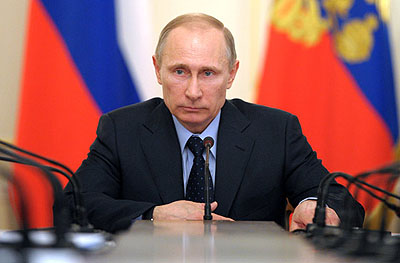 The BBC reports on how those Russian sanctions against Western food have put the squeeze on European and American suppliers:
The BBC reports on how those Russian sanctions against Western food have put the squeeze on European and American suppliers:
Moscow officials say frozen fish prices in the capital’s major supermarkets have risen by 6%, milk by 5.3% and an average cheese costs 4.4% more than it did before the 7 August ban took effect. Russia has banned imports of those basic foods, as well as meat and many other products, from Western countries, Australia and Japan. It is retaliation for the West’s sanctions on Russia over the revolt by pro-Russian separatists in Ukraine.
And it is not just Moscow. On the island of Sakhalin, in Russia’s far east, officials say the price of chicken thighs has soared 60%. Before the sanctions these were among the cheapest and most popular meat products in Russia.
Oops. Sorry about that. It’s actually Russian consumers who are paying the price. And for now, that seems to be OK:
Polls show that the vast majority of Russians approve of the sanctions against Western food. They have been told by government officials and state-controlled TV that the embargo will not affect prices, and that it will actually allow Russia’s own agriculture to flourish. And that message is being believed.
At a guess, Russian consumers aren’t very different from American consumers. Nationalistic pride will work for a while, as people accept higher prices as the cost of victory against whoever they’re fighting at the moment. But that won’t last any longer in Russia than it does in America. Give it a few months and public opinion is likely to turn decidedly surly. Who really cares about those damn Ukrainians anyway? They’re just a bunch of malcontents and always have been, amirite?
This is why Vladimir Putin needs a quick victory. The fact that he’s not getting it will eventually prompt him to either (a) quietly give up, or (b) go all in. Unfortunately, there’s really no telling which it will be.















